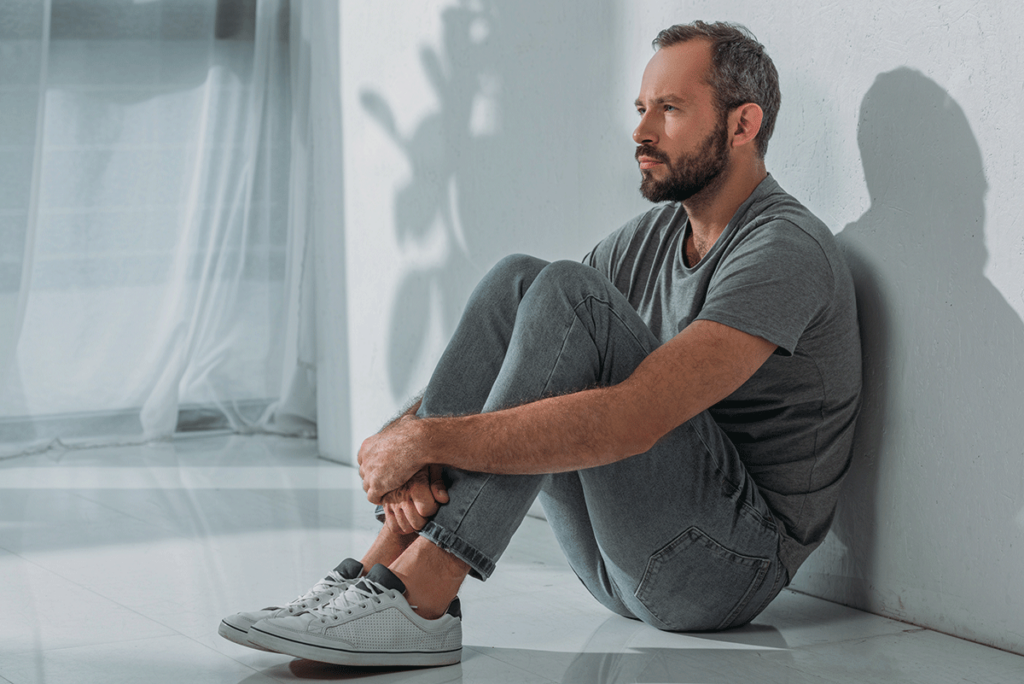People seeking veterans’ addiction treatment in Columbus at Evoke Wellness Ohio are often dealing with a history of trauma. Substance abuse and trauma are frequently linked. Alcohol or drug addiction can manifest rapidly when someone is trying to figure out how to quiet the extremely troubling symptoms of post-traumatic stress disorder (PTSD) by self-medicating.
Though it is understandable why PTSD and a substance use disorder (SUD) so often co-occur, the healthiest and safest course of action is to seek treatment for both in an addiction treatment center where professional clinicians provide evidence-based treatments in a secure, trigger-free setting. At Evoke Wellness Ohio, our staff is well-equipped to help you manage your trauma, start recovery, and reclaim your future and your life. Reach out today to learn more about how we can help you. You can submit this form or call 866.430.9267 to connect with us.
What Is PTSD?
When someone experiences a major trauma or ongoing traumas, their mind must find ways to file the memories and cope with their devastating nature. The brain often decides that being ready for future repeat trauma is vital for survival. So, it stores the experience in such a way that it is front and center, almost as if it just happened or is still happening, even if the event or events took place years ago. A person with PTSD is constantly in a fight or flight state; the brain’s plan is that this readiness will protect them from future trauma. But now, PTSD has become an ongoing trauma.
The brain of someone with PTSD shows symptoms such as re-experiencing, avoidance, reactivity, and cognitive or mood challenges.
If you struggle with PTSD, re-experiencing trauma may mean you have:
- Flashbacks
- Feelings of dread
- Nightmares
Avoidance might show up as:
- Guilt, depression, and anxiety
- Avoiding reminders of the trauma
- Apathy and emotional numbness
- Difficulty remembering the traumatic event
Reactivity looks like:
- Being quick to startle
- Relentless stress
- Sleep disturbance
- Emotional outbursts – rage, panic, grief, or fear
Cognitive and mood symptoms can be:
- Emotional distortion or lack of proportion
- Mood swings
- Inescapable negativity
- Depression
You can experience all of the above together or intermittently. Many people have flashbacks but still struggle to recall the details of the event. Emotional reactivity can alternate with emotional numbness. For the person dealing with PTSD, it’s like a roller coaster ride they cannot opt out of. It can seem very confusing for friends and family who don’t. PTSD does not just eventually fade away. It is a serious disorder that deserves thoughtful, compassionate, and professional treatment.
The Connections Between Substance Abuse and Trauma
However, many people, such as veterans, do not seek the support they need and deserve. The stigma around mental health conditions, fear of judgment, or a lack of understanding of what is happening keep veterans from getting help. Instead, they instinctively will often turn to drugs or alcohol as they desperately seek to mute the symptoms and get a break from the hypervigilance, flashbacks, and emotional roller coaster.
Self-medicating can quickly lead to abuse and addiction. PTSD and alcohol abuse in veterans is extremely common. There are other drugs that trauma victims, such as veterans, will also use to cope with PTSD symptoms, such as meth, cocaine, benzos, opioids—both street drugs and prescription painkillers, and more.
Call Today to Start Your Recovery with Veterans Addiction Treatment at Evoke Wellness Ohio
Whatever you are struggling with—no matter what kind of trauma you experienced and regardless of the substance or substances you have used to help you cope—we can treat your PTSD and your SUD in a coordinated approach that offers the best chance of successful recovery.
Our skilled, caring staff offers a full range of evidence-based therapies specifically designed for those suffering from substance abuse and trauma. Let us help. Reach out by filling out our online contact form or calling 866.430.9267. You do not have to face this journey alone.


